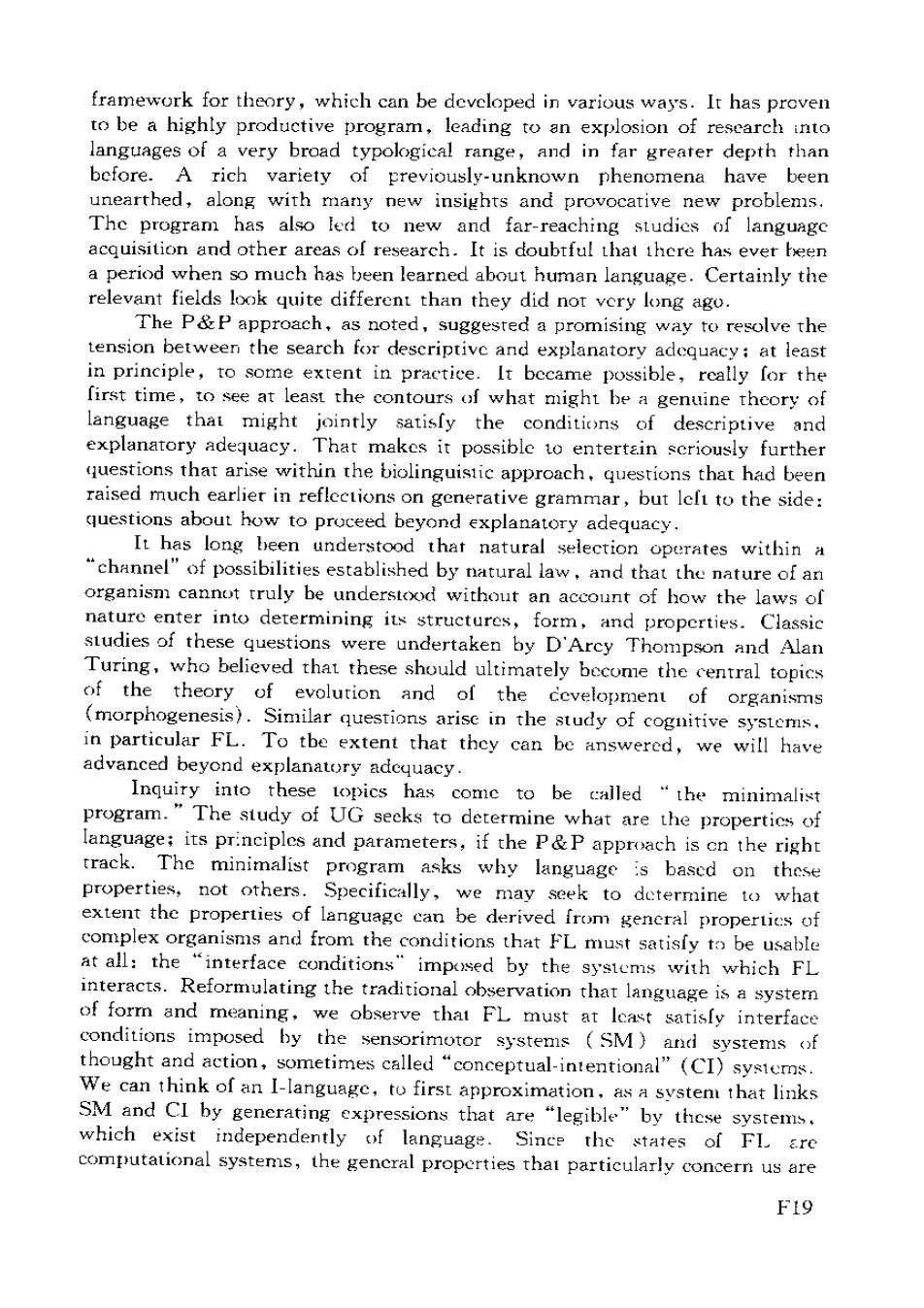正在加载图片...

framework for theory,which can be devcloped in various ways.It has proven to be a highly productive program,leading to an explosion of research into languages of a very broad typological range,and in far greater depth than before.A rich variety of previously-unknown phenomena have been unearthed,along with many new insights and provocative new problems. The program has also led to new and far-reaching studies of language acquisition and other areas of research.It is doubtful that there has ever been a period when so much has been learned about human language.Certainly the relevant fields look quite different than they did not very long ago. The P&P approach,as noted,suggested a promising way to resolve the tension between the search for descriptive and explanatory adequacy at least in principle,to some extent in practice.It became possible,really for the first time,to see at least the contours of what might be a genuine theory of language that might jointly satisfy the conditions of descriptive and explanatory adequacy.That makes it possible to entertain scriously further questions that arise within the biolinguistic approach,questions that had been raised much earliet in reflections on generative grammar,but left to the side: questions about how to proceed beyond explanatory adequacy. It has long been understood that natural selection operates within a "channel"of possibilities established by natural law,and that the nature of an organism cannot truly be understood without an account of how the laws of nature enter into determining its structures,form,and properties.Classic studies of these questions were undertaken by D'Arcy Thompson and Alan Turing,who believed that these should ultimately become the central topics of the theory of evolution and of the cevelopment of organisms (morphogenesis).Similar questions arisc in the study of cognitive systems. in particular FL.To tbe extent that they can be answered,we will have advanced beyond explanatory adequacy. Inquiry into these topics has come to be called "the minimalist program.The study of UG seeks to determine what are the propertics of language;its principles and parameters,if the P&P approach is cn the right track.The minimalist program asks why language is based on these properties,not others.Specifically,we may seek to dctermine to what extent the properties of language can be derived from general propertics of complex organisms and from the conditions that FL must satisfy to be usable at all:the "interface conditions"imposed by the systems with which FL interacts.Reformulating the traditional observation that language is a system of form and meaning,we observe that FL must at least satisly interface conditions imposed by the sensorimotor systems (SM)and systems of thought and action,sometimes called "conceptual-intentional"(CI)systems. We can think of an I-language,to first approximation,as a system that links SM and CI by generating expressions that are "legible"by these systems. which exist independently of language.Since the states of FL are computational systems,the gencral properties that particularly concern us are F19